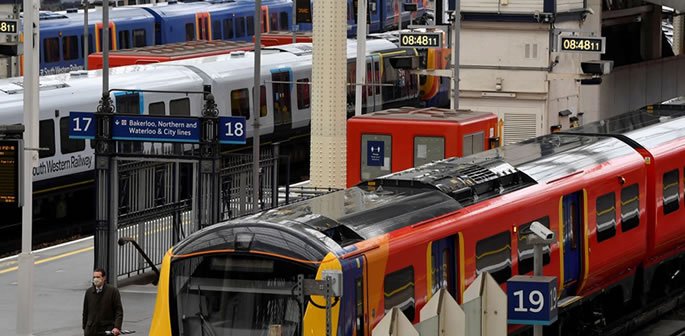How the Rail Strike is Affecting British Asians

Train passengers are facing widespread disruption and cancellations as Britain’s biggest rail strike for 30 years began on June 21, 2022.
Workers responsible for train lines and infrastructure across the UK walked out on Tuesday leaving thousands of services cancelled and passengers forced to seek alternative means of transport.
Further action is expected on June 23 and June 25.
The rail strike is about pay and conditions.
Commuter habits that changed over lockdown have not fully returned to normal, meaning revenues have been reduced. The industry says it needs to act to reach a “sustainable footing”.
Meanwhile, the RMT says Network Rail is threatening to cut safety-critical jobs as part of its modernisation programme, which would also include an increase in working hours. However, Network Rail rejects that characterisation.
With inflation soaring, the union is asking for a pay rise that mitigates the pain for its members. Against an inflation rate heading towards 11%, the union wants a rise of 7% and has already rejected a Network Rail offer of a 2% rise with a further 1% tied to job cuts.
There had been last-minute talks to avert the rail strike, however, they failed.
As a result, 40,000 RMT union members at Network Rail have walked out as well as 13 train operators.
Only about 4,500 of the usual 20,000 daily services are running.
Those train companies where workers are not going on strike will still suffer from disruption due to Network Rail signallers walking out.
Much of Britain will have no passenger trains for the entire day, including most of Scotland and Wales, the whole of Cornwall and Dorset, and places such as Chester, Hull, Lincoln and Worcester.
Services will primarily be restricted to main lines, but even those will only be open between 7:30 am and 6:30 pm.
London Underground workers will also strike for 24 hours on Tuesday, bringing the capital’s transport system to a halt.
Major railway stations such as London Euston and Birmingham New Street are deserted, with just a tiny fraction of the usual crowds of commuters waiting for a reduced service.
For commuters, schoolchildren and holidaymakers, journeys have been made much more complicated.
Ajay Gupta, who usually travels to work by train, said:
“Because of the strike, I will have to drive to work which will be hectic because I work in Birmingham.”
“This means I will have to change my whole routine so that I make it on time.”
However, some have supported the rail strike, stating that the government is to blame.
Labour MP Navendu Mishra said: “This treacherous government has underfunded and mismanaged our public transport network for more than a decade.
“As a proud trade unionist, I stand with all workers on our railway network who are taking industrial action to fight for their jobs and keep passengers safe.”
Another said: “As a former London Underground worker, nothing but absolute solidarity with all those striking today.”
The rail strike is also having knock-on effects on other forms of transport, with warnings of overcrowding on buses and greatly increased motorway traffic, making travel a difficult one.